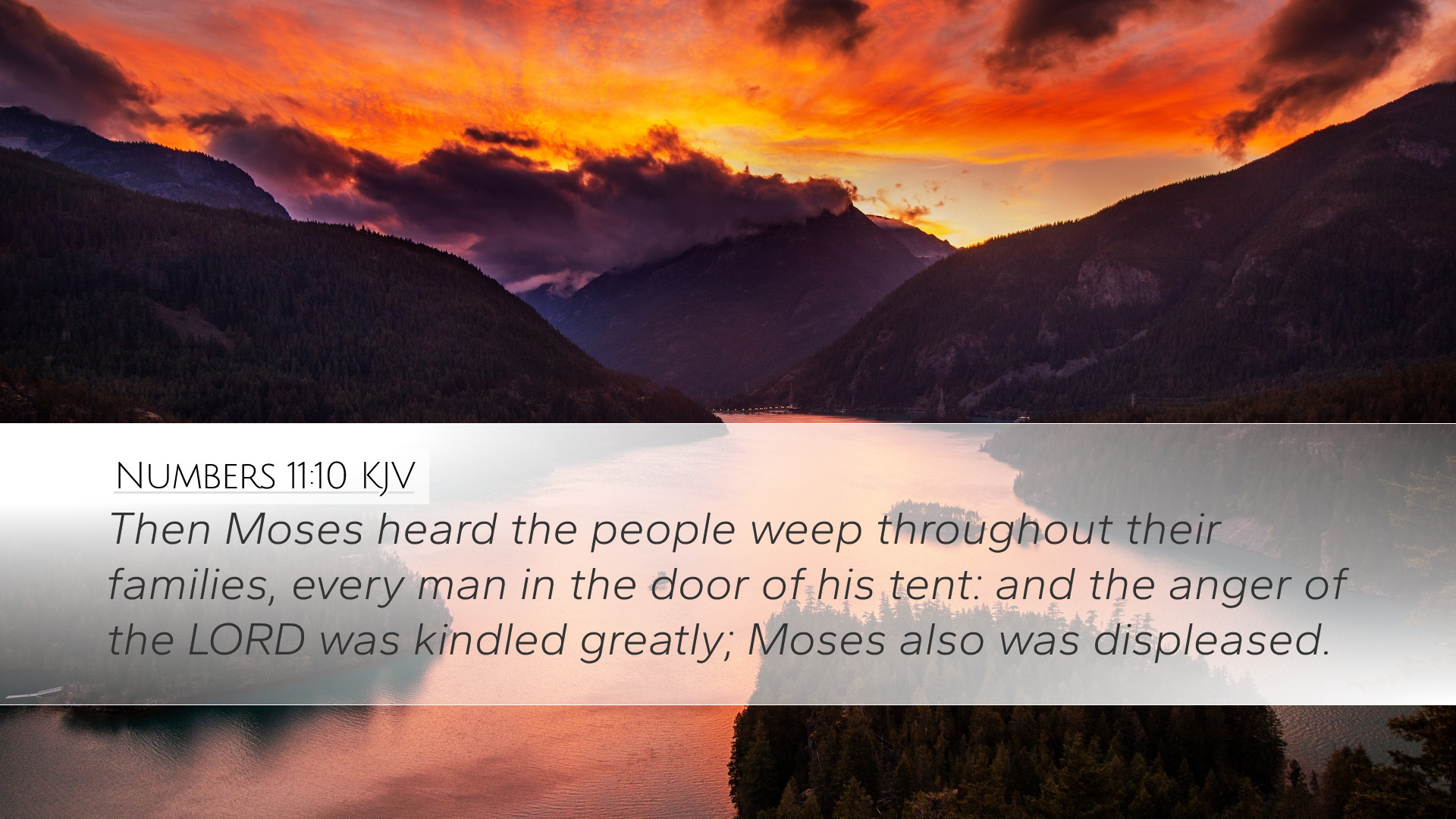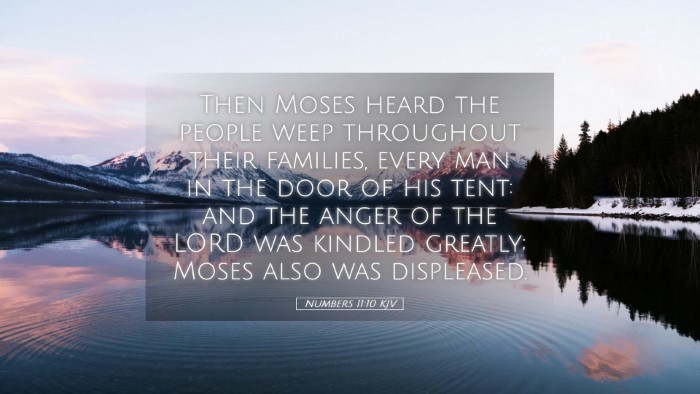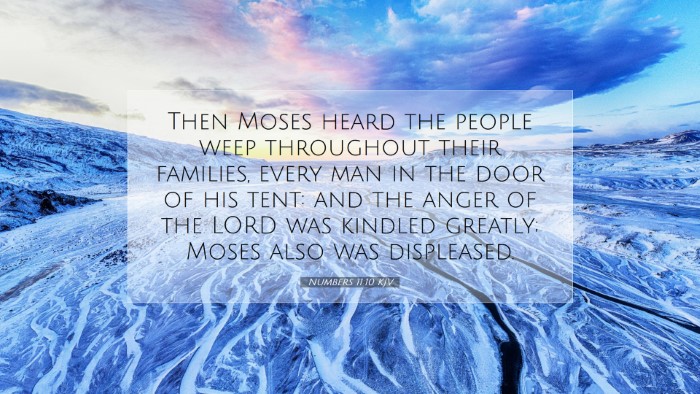Commentary on Numbers 11:10
The verse under consideration, Numbers 11:10, reads:
“Then Moses heard the people weeping throughout their families; every man in the door of his tent: and the anger of the Lord was kindled greatly; Moses also was displeased.”
Contextual Overview
This passage is set within the broader narrative of the Israelites' journey through the wilderness, a period marked by trials, murmurings, and divine provision. The events described in Numbers 11 depict a critical moment wherein the people express their discontent concerning their circumstances. This sets the stage for Moses’ increasing burden as their leader.
Observations from Public Domain Commentaries
Various theologians have explored the implications of this verse, highlighting key themes of leadership, divine anger, and human dissatisfaction.
Moses and the People
Matthew Henry notes that Moses is deeply affected by the cries of the people, indicating the weight of his leadership role. He points out that the weeping of the Israelites signifies a profound emotional turmoil and sets the tone of despair in the camp. Their lamentation reflects not only dissatisfaction with their diet but also an underlying spiritual malaise.
Albert Barnes emphasizes the familial aspect of the Israelites' discontent, as the phrase “throughout their families” suggests that the rebellion spread beyond individual grievances to communal affectation. The dissatisfaction expressed at “the door of his tent” reveals the intimate nature of their complaints, underscoring how personal grievances can escalate into collective dissatisfaction that challenges both God's provision and Moses’ leadership.
Divine Anger and Moses’ Displeasure
Adam Clarke interprets the “anger of the Lord” as a serious matter, seeing it as a response to Israel's persistent rebellion against divine provision. This anger was not merely a reaction but reflects God's deep concern over His covenant people rejecting His gifts. Clarke advocates that God's anger often stems from a place of love, desiring His people to trust in His plan and provision.
Henry further explores the duality of emotions experienced by Moses as he mirrors God’s displeasure. Moses’ frustration exemplifies the struggles of spiritual leaders who bear the weight of their congregation’s faults and failures. He highlights how leaders can become disheartened when their people turn against the blessings they should cherish.
Theological Implications
This verse demonstrates significant theological insights regarding human nature, divine sovereignty, and the challenges of leadership.
Human Nature and Complaints
- Discontentment: The Israelites’ complaints reveal a recurring theme in the human experience—the tendency to grumble in times of difficulty or when expectations are unmet. This discontentment serves as a cautionary tale for believers today concerning the importance of gratitude and faithfulness.
- Collective Responsibility: The broad basis of their complaints stresses that dissatisfaction can resonate through a community, quickly influencing others to adopt a mindset of negativity. Leaders must be vigilant in recognizing and addressing this dynamic.
Divine Sovereignty and Provision
- God’s Providence: The murmuring of the people indicates a failure to appreciate the divine provision they had experienced, such as the manna. It showcases a lack of faith that can arise even with clear evidence of God’s care.
- Consequences of Discontent: The anger stirred up in God serves as a reminder that rebellion against God’s will carries serious spiritual consequences. Understanding this is crucial for theological education and the living out of faithful discipleship.
Leadership Burdens
- Moses’ Example: Moses’ reaction reflects the difficulty of spiritual leadership, where one must navigate between leading a people towards obedience while enduring their grumbling. His displeasure illustrates the emotional toll of such burdens.
- Effective Leadership: The emotional responses of leaders matter; how they respond to challenges can set the tone for their community. The example of Moses teaches the necessity of seeking God’s guidance amid turmoil.
Concluding Reflections
In summary, Numbers 11:10 provides rich insight for pastors, students, theologians, and Bible scholars, merging the human experience of discontent with the transcendent nature of divine oversight. The interplay of emotions experienced by Moses, the gravity of divine displeasure, and the corporate nature of human grievances instructs modern believers about the importance of dependence on divine provision and maintaining a spirit of gratitude.
Ultimately, the insights from public domain commentaries encourage a deeper examination of the individual and collective disposition toward God’s gifts and leadership. This verse serves as a powerful reminder of the need for patience, faith, and belief in God’s goodness in times of trial.


